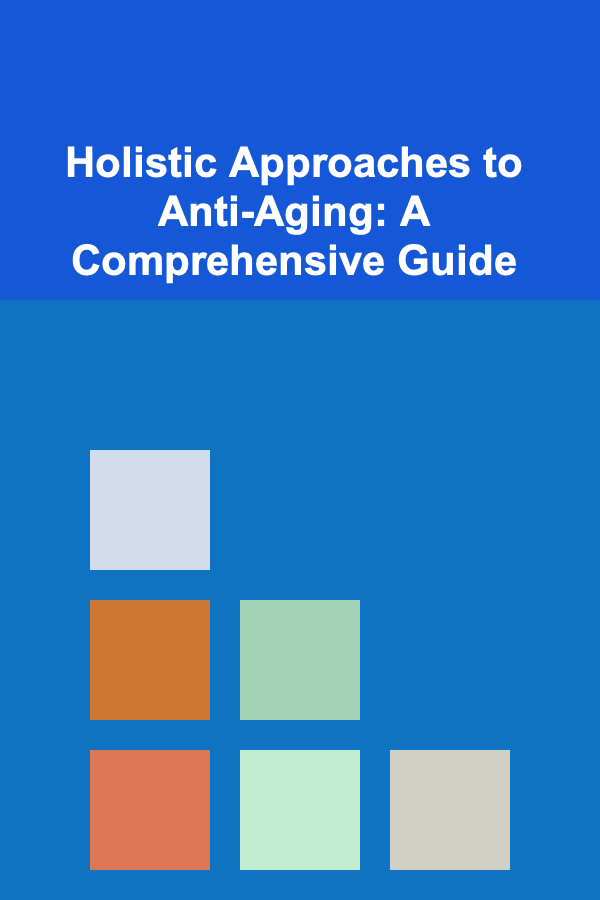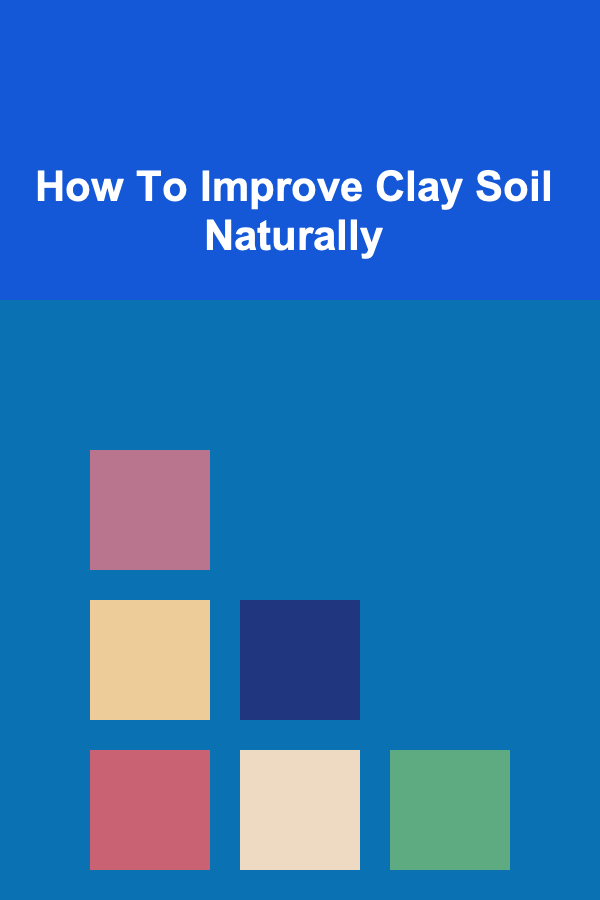
Holistic Approaches to Anti-Aging: A Comprehensive Guide
ebook include PDF & Audio bundle (Micro Guide)
$12.99$5.99
Limited Time Offer! Order within the next:

The pursuit of longevity and youthful vitality is a timeless human desire. While quick fixes and miracle cures are often touted, a truly effective approach to anti-aging is holistic, encompassing the interconnectedness of mind, body, and spirit. This means focusing on lifestyle factors, nutrition, stress management, emotional well-being, and environmental awareness, rather than solely relying on topical creams or invasive procedures. This comprehensive guide delves into the practical steps you can take to cultivate a holistic anti-aging strategy, promoting not just a longer lifespan, but a richer, healthier, and more fulfilling life.
Understanding Aging: Beyond the Surface
Before diving into the practices, it's crucial to understand the fundamental processes of aging. Aging is a complex phenomenon influenced by a multitude of factors, including genetics, lifestyle, and environmental exposures. At a cellular level, these factors contribute to:
- DNA Damage: Accumulated DNA damage over time leads to cellular dysfunction and increased risk of age-related diseases.
- Telomere Shortening: Telomeres, protective caps at the ends of chromosomes, shorten with each cell division, eventually triggering cellular senescence (aging).
- Cellular Senescence: Senescent cells, which have stopped dividing, accumulate in tissues and release inflammatory substances that contribute to age-related decline.
- Oxidative Stress: An imbalance between free radical production and antioxidant defenses leads to oxidative damage to cells and tissues.
- Inflammation (Inflammaging): Chronic, low-grade inflammation contributes to a wide range of age-related diseases, from cardiovascular disease to Alzheimer's disease.
- Mitochondrial Dysfunction: Mitochondria, the powerhouses of cells, become less efficient with age, leading to reduced energy production and increased oxidative stress.
- Glycation: The process of sugars binding to proteins and lipids (glycation) forms Advanced Glycation End-products (AGEs), which contribute to tissue stiffening and damage.
- Hormonal Decline: Levels of key hormones, such as growth hormone, testosterone, and estrogen, decline with age, impacting muscle mass, bone density, and overall vitality.
- Epigenetic Changes: Epigenetic modifications, which regulate gene expression, change with age, influencing cellular function and susceptibility to disease.
Understanding these mechanisms empowers you to make informed choices about your lifestyle and adopt strategies that target these aging processes.
The Pillars of Holistic Anti-Aging
A holistic anti-aging approach rests on several fundamental pillars. Each pillar plays a vital role in promoting overall health and resilience, contributing to a longer and healthier life.
1. Nutrition: Fueling Longevity from Within
Nutrition is arguably the most critical pillar. What you eat directly impacts your cellular health, inflammation levels, and overall aging process. The focus should be on consuming a nutrient-dense, whole-foods diet that provides the building blocks for cellular repair and protects against age-related damage.
Key Dietary Strategies:
- The Mediterranean Diet: This diet, rich in fruits, vegetables, whole grains, legumes, nuts, seeds, olive oil, and fish, is consistently linked to reduced risk of chronic diseases and increased longevity. It provides abundant antioxidants, healthy fats, and fiber.
- Plant-Based Focus: Emphasize plant-based foods as the foundation of your diet. Aim for a wide variety of colorful fruits and vegetables, ensuring you obtain a broad spectrum of vitamins, minerals, and phytonutrients.
- Limit Processed Foods, Sugar, and Refined Carbohydrates: These foods contribute to inflammation, oxidative stress, and glycation, accelerating the aging process. They often lack essential nutrients and can disrupt blood sugar levels.
- Healthy Fats: Include sources of healthy fats, such as olive oil, avocados, nuts, seeds, and fatty fish (salmon, mackerel, sardines). These fats support brain health, reduce inflammation, and promote healthy skin.
- Lean Protein: Ensure adequate protein intake to maintain muscle mass, which declines with age. Choose lean sources such as fish, poultry, beans, lentils, and tofu. Consider the timing of protein intake, distributing it evenly throughout the day.
- Hydration: Drink plenty of water throughout the day to support cellular function, detoxification, and skin hydration. Aim for at least eight glasses of water per day, and adjust based on your activity level and climate.
- Intermittent Fasting (Optional): Some research suggests that intermittent fasting can promote cellular repair, improve insulin sensitivity, and extend lifespan. Consult with a healthcare professional before implementing intermittent fasting, especially if you have any underlying health conditions. Common methods include the 16/8 method (fasting for 16 hours and eating within an 8-hour window) or the 5:2 method (eating normally for 5 days and restricting calories on 2 days).
Specific Nutrients to Prioritize:
- Antioxidants: Antioxidants combat free radicals and protect against oxidative damage. Key antioxidants include:
- Vitamin C: Found in citrus fruits, berries, and bell peppers.
- Vitamin E: Found in nuts, seeds, and vegetable oils.
- Selenium: Found in Brazil nuts, seafood, and whole grains.
- Coenzyme Q10 (CoQ10): Found in organ meats, fatty fish, and whole grains. Consider supplementation, especially if taking statin medications.
- Glutathione: The body's master antioxidant, but levels decline with age. Support glutathione production by consuming foods rich in sulfur, such as cruciferous vegetables (broccoli, cauliflower, Brussels sprouts) and garlic. N-acetylcysteine (NAC) is a precursor to glutathione and can be taken as a supplement.
- Omega-3 Fatty Acids: These essential fatty acids reduce inflammation and support brain health. Excellent sources include fatty fish, flaxseeds, and walnuts. Consider a high-quality fish oil or algal oil supplement.
- Fiber: Fiber promotes gut health, regulates blood sugar levels, and helps eliminate toxins. Good sources include fruits, vegetables, whole grains, and legumes.
- Polyphenols: These plant compounds have potent antioxidant and anti-inflammatory properties. Rich sources include berries, green tea, dark chocolate, and olive oil. Resveratrol, found in grapes and red wine, is a well-known polyphenol with potential anti-aging benefits.
- Vitamins and Minerals: Ensure adequate intake of essential vitamins and minerals, including vitamin D, vitamin B12, calcium, magnesium, and zinc. Consider a multivitamin supplement to fill any potential gaps in your diet.
2. Exercise: Movement as Medicine
Regular physical activity is another cornerstone of holistic anti-aging. Exercise not only helps maintain a healthy weight and improve cardiovascular health but also stimulates cellular repair, boosts immune function, and enhances cognitive function. Aim for a combination of different types of exercise to maximize the benefits.
Types of Exercise to Incorporate:
- Cardiovascular Exercise (Aerobic): Activities such as running, swimming, cycling, and dancing improve cardiovascular health, increase energy levels, and reduce the risk of chronic diseases. Aim for at least 150 minutes of moderate-intensity aerobic exercise or 75 minutes of vigorous-intensity aerobic exercise per week.
- Strength Training (Resistance Training): Strength training helps maintain muscle mass, which declines with age. It also improves bone density, increases metabolism, and enhances functional strength. Aim for strength training exercises at least twice per week, targeting all major muscle groups. Use weights, resistance bands, or bodyweight exercises.
- Flexibility and Mobility Exercises: Activities such as stretching, yoga, and Pilates improve flexibility, range of motion, and balance, reducing the risk of injuries and improving overall mobility. Incorporate these exercises into your routine several times per week.
- High-Intensity Interval Training (HIIT): HIIT involves short bursts of intense exercise followed by periods of rest or low-intensity exercise. It is an efficient way to improve cardiovascular fitness, burn calories, and boost metabolism. Include HIIT workouts 1-2 times per week.
- Mind-Body Exercises: Practices such as Tai Chi and Qigong combine gentle movements, meditation, and breathing exercises to improve balance, coordination, and mental well-being. These exercises can be particularly beneficial for older adults.
Important Considerations:
- Start Slowly and Gradually Increase Intensity: If you are new to exercise, start with low-intensity activities and gradually increase the intensity and duration as you become fitter.
- Listen to Your Body: Pay attention to your body's signals and avoid pushing yourself too hard. Rest and recover adequately between workouts.
- Find Activities You Enjoy: Choose activities that you find enjoyable and sustainable, so you are more likely to stick with your exercise routine in the long term.
- Consult with a Healthcare Professional: If you have any underlying health conditions, consult with a healthcare professional before starting a new exercise program.
3. Stress Management: Cultivating Inner Peace
Chronic stress is a major contributor to aging. It triggers the release of cortisol, a stress hormone that can damage cells, suppress the immune system, and accelerate the aging process. Effective stress management techniques are essential for promoting longevity and well-being.
Stress Management Techniques:
- Mindfulness Meditation: Mindfulness meditation involves focusing on the present moment without judgment. It can help reduce stress, improve focus, and promote emotional well-being. Practice mindfulness meditation for 10-20 minutes each day.
- Deep Breathing Exercises: Deep breathing exercises can help calm the nervous system and reduce stress. Practice deep diaphragmatic breathing for several minutes each day.
- Yoga: Yoga combines physical postures, breathing exercises, and meditation to reduce stress, improve flexibility, and promote overall well-being.
- Spending Time in Nature: Spending time in nature has been shown to reduce stress, improve mood, and boost immune function. Take regular walks in parks, forests, or other natural settings.
- Social Connection: Strong social connections are essential for emotional well-being and can help buffer against stress. Spend time with loved ones, participate in social activities, and cultivate meaningful relationships.
- Creative Expression: Engaging in creative activities such as painting, writing, music, or dancing can help reduce stress and promote self-expression.
- Prioritize Sleep: Adequate sleep is essential for stress management and overall health. Aim for 7-9 hours of quality sleep each night.
- Time Management and Prioritization: Effective time management and prioritization can help reduce stress and increase productivity. Learn to delegate tasks, set realistic goals, and prioritize activities that are most important to you.
4. Sleep Hygiene: The Fountain of Youth
Sleep is often overlooked, but it's during sleep that the body repairs and rejuvenates itself. Adequate sleep is crucial for cellular repair, hormone regulation, immune function, and cognitive function. Poor sleep can accelerate the aging process and increase the risk of chronic diseases.
Strategies for Improving Sleep Hygiene:
- Establish a Regular Sleep Schedule: Go to bed and wake up at the same time each day, even on weekends, to regulate your body's natural sleep-wake cycle.
- Create a Relaxing Bedtime Routine: Engage in relaxing activities before bed, such as taking a warm bath, reading a book, or listening to calming music.
- Optimize Your Sleep Environment: Make sure your bedroom is dark, quiet, and cool. Use blackout curtains, earplugs, or a white noise machine if necessary.
- Avoid Caffeine and Alcohol Before Bed: Caffeine and alcohol can interfere with sleep. Avoid consuming them in the hours leading up to bedtime.
- Limit Screen Time Before Bed: The blue light emitted from electronic devices can suppress melatonin production, making it harder to fall asleep. Avoid using electronic devices for at least an hour before bed.
- Get Regular Exercise: Regular exercise can improve sleep quality, but avoid exercising too close to bedtime.
- Consider Sleep Aids (with caution): If you have trouble sleeping, talk to your doctor about potential sleep aids, such as melatonin or other medications. However, prioritize addressing underlying sleep hygiene issues first.
5. Environmental Awareness and Detoxification
Exposure to environmental toxins can accelerate the aging process and increase the risk of chronic diseases. Minimizing your exposure to toxins and supporting your body's natural detoxification processes is crucial for holistic anti-aging.
Strategies for Environmental Awareness and Detoxification:
- Reduce Exposure to Environmental Toxins:
- Air Pollution: Use air purifiers in your home and avoid spending time in areas with high levels of air pollution.
- Water Contaminants: Use a water filter to remove contaminants from your drinking water.
- Pesticides and Herbicides: Choose organic foods whenever possible to reduce your exposure to pesticides and herbicides.
- Household Chemicals: Use natural and non-toxic cleaning products and personal care products.
- Heavy Metals: Minimize exposure to heavy metals such as mercury and lead. Avoid eating large predatory fish that may contain high levels of mercury.
- Plastics: Reduce your use of plastics, especially single-use plastics. Avoid heating food in plastic containers.
- Support Your Body's Detoxification Processes:
- Liver Support: Consume foods that support liver function, such as cruciferous vegetables, garlic, and turmeric. Consider taking a milk thistle supplement.
- Kidney Support: Drink plenty of water to support kidney function and detoxification.
- Gut Health: Promote gut health by consuming a fiber-rich diet, taking probiotics, and avoiding processed foods.
- Sweating: Engage in activities that promote sweating, such as exercise or sauna sessions.
6. Cognitive Stimulation and Lifelong Learning
Keeping your mind active and engaged is crucial for maintaining cognitive function and preventing age-related cognitive decline. Lifelong learning, intellectual stimulation, and social engagement can help keep your brain sharp and resilient.
Strategies for Cognitive Stimulation:
- Learn New Skills: Take classes, learn a new language, or pursue a new hobby.
- Read Regularly: Read books, articles, and newspapers to expand your knowledge and stimulate your mind.
- Play Brain Games: Engage in activities such as puzzles, Sudoku, and crossword puzzles to challenge your cognitive abilities.
- Socialize and Engage in Meaningful Conversations: Social interaction and meaningful conversations can help keep your mind sharp and engaged.
- Practice Mindfulness and Meditation: Mindfulness and meditation can improve focus, attention, and cognitive function.
- Travel and Explore New Cultures: Traveling and experiencing new cultures can broaden your perspective and stimulate your mind.
- Volunteer and Give Back to Your Community: Volunteering and giving back to your community can provide a sense of purpose and fulfillment, which can benefit cognitive health.
7. Emotional Well-being and Purpose
Emotional well-being and a sense of purpose are essential for holistic anti-aging. Positive emotions, strong social connections, and a sense of meaning in life can contribute to increased longevity and overall well-being. Addressing unresolved emotional issues and cultivating a positive mindset are crucial.
Strategies for Promoting Emotional Well-being:
- Practice Gratitude: Take time each day to appreciate the good things in your life. Keep a gratitude journal or express your gratitude to others.
- Forgive Yourself and Others: Holding onto grudges and resentment can be detrimental to your emotional well-being. Practice forgiveness to release negative emotions.
- Cultivate Positive Relationships: Surround yourself with supportive and positive people. Nurture your relationships and avoid toxic individuals.
- Seek Therapy or Counseling: If you are struggling with emotional issues, seek professional help. Therapy or counseling can provide you with tools and strategies to improve your emotional well-being.
- Find Meaning and Purpose in Life: Identify your values and passions, and find ways to live a life that is aligned with your purpose. Volunteer, pursue your hobbies, or engage in activities that bring you joy and fulfillment.
- Practice Self-Compassion: Treat yourself with kindness and understanding, especially during difficult times. Recognize that everyone makes mistakes, and learn from your experiences.
- Develop Resilience: Learn to bounce back from setbacks and challenges. Cultivate a positive mindset and focus on solutions rather than dwelling on problems.
Supplements: A Supporting Role
While nutrition should be the foundation, certain supplements can play a supporting role in a holistic anti-aging strategy. However, it's important to remember that supplements are not a substitute for a healthy lifestyle. Always consult with a healthcare professional before taking any new supplements, especially if you have any underlying health conditions or are taking medications.
Potential Anti-Aging Supplements:
- Multivitamin: A high-quality multivitamin can help fill any potential gaps in your diet and ensure you are getting adequate amounts of essential vitamins and minerals.
- Omega-3 Fatty Acids: Supplementing with omega-3 fatty acids can help reduce inflammation and support brain health.
- Coenzyme Q10 (CoQ10): CoQ10 is an antioxidant that supports mitochondrial function and energy production. Consider supplementation, especially if taking statin medications.
- Resveratrol: Resveratrol is a polyphenol found in grapes and red wine that has potential anti-aging benefits.
- N-acetylcysteine (NAC): NAC is a precursor to glutathione and can help boost glutathione levels.
- Vitamin D: Many people are deficient in vitamin D, which is important for bone health, immune function, and overall health. Consider supplementation, especially during the winter months.
- Magnesium: Magnesium is involved in hundreds of biochemical reactions in the body and is important for muscle function, nerve function, and bone health.
- Curcumin: Curcumin, the active compound in turmeric, has potent anti-inflammatory and antioxidant properties.
- Collagen: Collagen supplements may improve skin elasticity, reduce wrinkles, and support joint health.
- Nicotinamide Mononucleotide (NMN) and Nicotinamide Riboside (NR): These are precursors to NAD+, a crucial coenzyme involved in cellular energy production and DNA repair. Research on NMN and NR is ongoing, but some studies suggest they may have anti-aging benefits.
Personalizing Your Holistic Anti-Aging Plan
The best holistic anti-aging plan is one that is tailored to your individual needs, goals, and preferences. Consider working with a healthcare professional, such as a doctor, registered dietitian, or certified personal trainer, to develop a personalized plan that is right for you. Genetic testing can also provide valuable insights into your individual risk factors and predispositions, allowing you to make more informed choices about your health and lifestyle.
The Long Game: Consistency and Patience
Holistic anti-aging is not a quick fix, but a lifelong journey. It requires consistency, patience, and a commitment to making sustainable lifestyle changes. Don't expect to see results overnight. Focus on making small, gradual changes that you can maintain over the long term. Celebrate your progress along the way, and be kind to yourself if you slip up. The most important thing is to keep moving forward and to embrace the process of aging gracefully and healthily.
Ultimately, holistic anti-aging is about more than just extending lifespan. It's about enhancing the quality of your life, promoting vitality, and living each day to the fullest. By embracing a holistic approach, you can empower yourself to live a longer, healthier, and more fulfilling life.
Reading More From Our Other Websites
- [Home Storage Solution 101] How to Create a Functional Laundry Room with Storage Solutions
- [Organization Tip 101] Best Organization Tools for Household Chores
- [Personal Care Tips 101] How to Create a Mouthwash Routine for Braces Patients
- [Home Holiday Decoration 101] How to Make DIY Holiday Decorations for a Personalized Touch
- [Organization Tip 101] How to Upcycle Old Furniture into Closet Storage
- [Mindful Eating Tip 101] Mindful Meals Made Easy: Quick Steps for First-Time Practitioners
- [Reading Habit Tip 101] Proven Techniques to Boost Your Reading Focus
- [Horseback Riding Tip 101] Common Riding Mistakes and How to Correct Them: A Trainer's Guide
- [Organization Tip 101] How to Document Home Improvements for Future Reference
- [Scrapbooking Tip 101] Digital Meets Analog: Integrating QR Codes and Videos into Your Family Scrapbook

How to Maximize Your Retirement Savings with Smart Investment Choices
Read More
How to Stage a Rental Property for Higher Returns
Read More
How To Improve Clay Soil Naturally
Read MoreHow to Audit Your Business Expense Tracker for Accuracy
Read More
10 Tips for Exploring Tide Pools Responsibly
Read More
10 Tips for a Stress-Free College Application Timeline
Read MoreOther Products

How to Maximize Your Retirement Savings with Smart Investment Choices
Read More
How to Stage a Rental Property for Higher Returns
Read More
How To Improve Clay Soil Naturally
Read MoreHow to Audit Your Business Expense Tracker for Accuracy
Read More
10 Tips for Exploring Tide Pools Responsibly
Read More